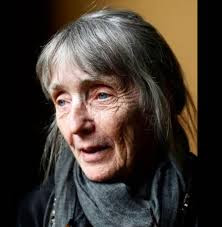
The literary world is mourning the unexpected loss of acclaimed poet, novelist, and essayist Fanny Howe, who has passed away suddenly. Known for her fearless exploration of spirituality, politics, identity, and language, Howe’s death marks the end of an era for contemporary American literature. Her work spanned decades and genres, but at its core was always a fierce commitment to truth, human dignity, and the mystery of existence.
Born in 1940 in Buffalo, New York, Fanny Howe was a writer of extraordinary vision. Her early years were shaped by a love of language and an evolving sense of justice, both of which would become trademarks of her work. She authored more than 20 books of poetry and fiction, and her essays on language, belief, and being continue to influence writers and thinkers around the world.
Howe’s poetry—often elliptical, haunting, and deeply lyrical—challenged the boundaries of form and meaning. Her novels, including Indivisible and Saving History, explored questions of faith, morality, and struggle, while her essays, most notably in the collection The Wedding Dress: Meditations on Word and Life, offered rare insights into the mind of a deeply spiritual and intellectually fearless writer.
Throughout her life, Howe remained committed to issues of social justice and often addressed race, war, and inequality with compassion and complexity. Her Catholic faith was both a source of personal contemplation and a lens through which she questioned the structures of power and the nature of grace.
Over the years, Fanny Howe received numerous honors for her contributions to literature, including the Griffin Poetry Prize and a Guggenheim Fellowship. She was a finalist for the National Book Award and was elected to the American Academy of Arts and Letters. Despite her accolades, Howe remained intensely private and devoted to the inner life of the soul, often retreating from the public eye to focus on writing and teaching.
She taught at institutions such as the University of California, San Diego, and Boston University, where she mentored generations of writers who were drawn not only to her intellect but to her profound humanity. Students and colleagues alike remember her as a brilliant thinker, a humble presence, and a guiding light in the world of contemporary letters.
News of her passing has prompted an outpouring of grief and remembrance from literary figures and readers around the globe. Tributes have highlighted her generosity, her courage in writing about the ineffable, and the profound sense of presence that lives on in her work.
“Fanny Howe didn’t just write about mystery—she was a mystery,” one fellow writer noted. “Her work opened doors to places in ourselves we didn’t know existed.”
Fanny Howe is survived by her children, grandchildren, and extended family, many of whom also carry a deep connection to literature and activism. Her daughter, Danzy Senna, is a well-known author in her own right.
In this time of sorrow, the literary world remembers not only what has been lost but what endures. Fanny Howe’s words, always luminous and daring, will continue to speak to readers for generations to come.
May her memory be a blessing and her voice forever echo in the pages she leaves behind.




